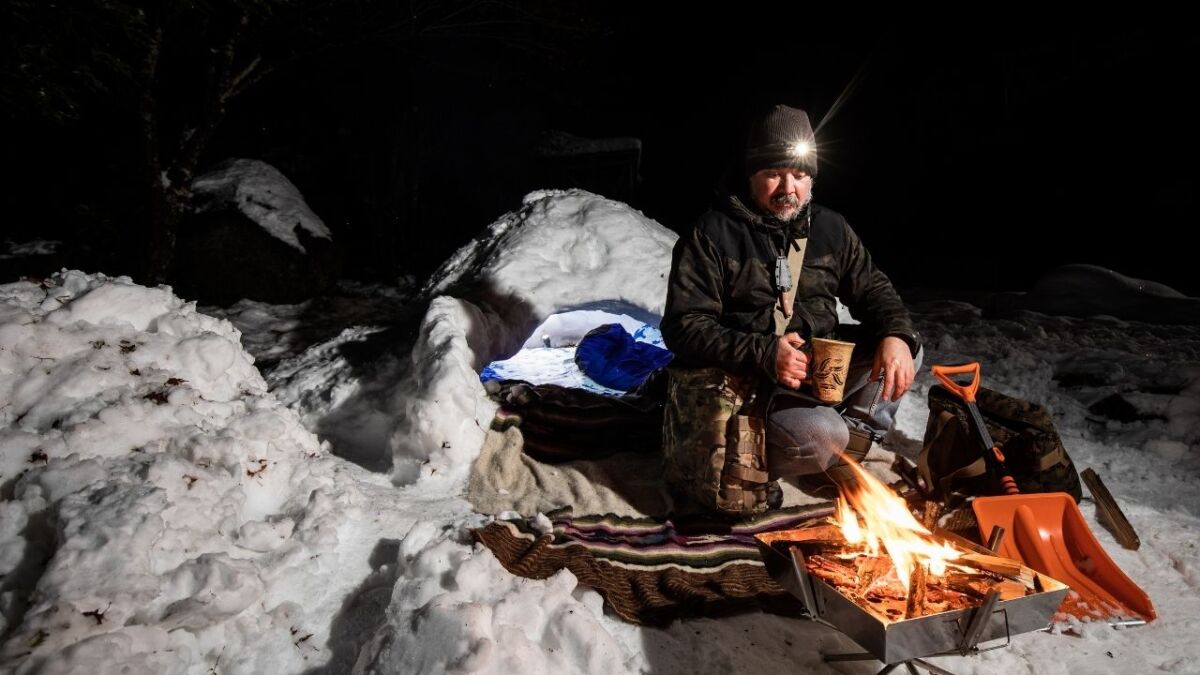
Overcoming fears, sleeping outside: valuable practical tips from the community for your night alone in the forest
👉 The key facts from this guide
- Preparation and Adaptation: Proper planning, gradual approach, and beginner overnight stays in familiar environments help to get used to the sounds of nature.
- Equipment and Sleeping Places: High-quality equipment (sleeping bag, sleeping pad, tent, etc.) and choosing a suitable, safe sleeping place are essential for a restful night.
- Dealing with Darkness: Using natural light (moon, stars) and appropriate lighting (headlamps with red light) help to overcome fears of darkness.
- Trust in Nature: Most animals avoid humans, and human dangers are statistically less likely in the wilderness than in the city. Trust and good preparation minimize risks.
- Psyche and Acceptance: Positive attitude, distractions (audiobooks, music), and the gradual build-up of self-confidence are crucial to combat fears and loneliness in the wilderness. -
I still remember my first solo night in the wilderness well.
The cracking in the underbrush, the rustling of the leaves in the wind - every sound made me lie wide awake in the sleeping bag.
My thoughts revolved around the question:
- What if a wild animal does appear?
- Or even worse, an uninvited human visitor?
But whether it's cold, an uncomfortable sleeping surface, or the fear of unknown creatures - you are not alone with these initial difficulties!
In conversations with friends, the Wildimpuls community, and while browsing outdoor forums, it became clear to me:
Almost everyone who has ever spent the night alone outside knows these fears and uncertainties.
That's why I would like to openly discuss the most common concerns about spending the night alone in nature here.
Above all, I want to encourage you to face this challenge. Because I can tell you from my experience:
With the right preparation and attitude, as well as some practice and the right equipment, spending the night alone in the forest can become an unforgettable experience.
Let's find out together what fears are troubling you and how you can overcome them.
I have gathered testimonials and tips from the community that will help you lie relaxed and rested in the sleeping bag - in the middle of the wilderness, just you and nature.
Are you ready for your adventure under the starry sky? Then let's get started!
Fear of Unknown Noises
Do you know that feeling? You're lying in your sleeping bag, it's pitch dark, and suddenly, you hear a crack in the underbrush.
Immediately, you are wide awake and your heart races faster than a hamster on a wheel.
You wonder whether you should hold your knife or your flashlight in your hand - or maybe both at the same time as a panicked ninja?
What was that? An animal? A human? Or just a falling branch?
I still remember exactly how I felt on my first night alone in the forest. Every rustle made me flinch.
My imagination went wild and painted the wildest scenarios. It was probably just a little mouse searching for food under my hammock.
The end of the story: On my first night, I didn't get a wink of sleep. I was constantly in a light sleep. I didn't recover, even though it would have been so important (I was assisting at a seminar).
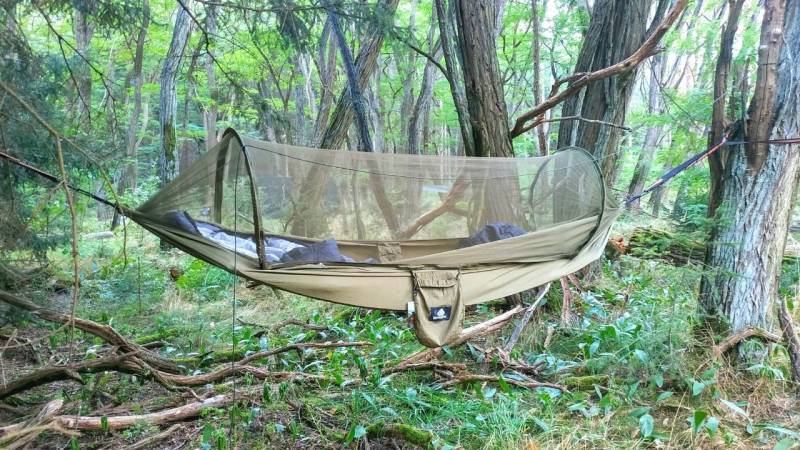
But I am not the only one who has experienced this. Many outdoor enthusiasts report similar experiences:
Getting used to it is everything
The good news: With time and some practice, you will learn to interpret the nighttime noises properly.
What initially seems threatening quickly turns out to be harmless. A cracking branch here, a rustling leaf there - all quite normal in the forest.
My tip: Start with overnight stays in the garden or on the balcony. This way, you can get used to the unfamiliar sounds in a familiar environment. Gradually increase the distance and plan your first nights near your home until you feel confident enough for further distances.
The Power of Distraction
Another trick to calm down at night is distraction. Consciously divert your attention to something apart from the surrounding noises.
Personally, I swear by exciting audiobooks or calming music at the beginning.
"An audiobook that calms me helps!" - a Facebook user
Even a small campfire can work wonders. The crackling of the flames and the warm glow are incredibly relaxing. Additionally, the fire scares away animals and you immediately feel much safer.
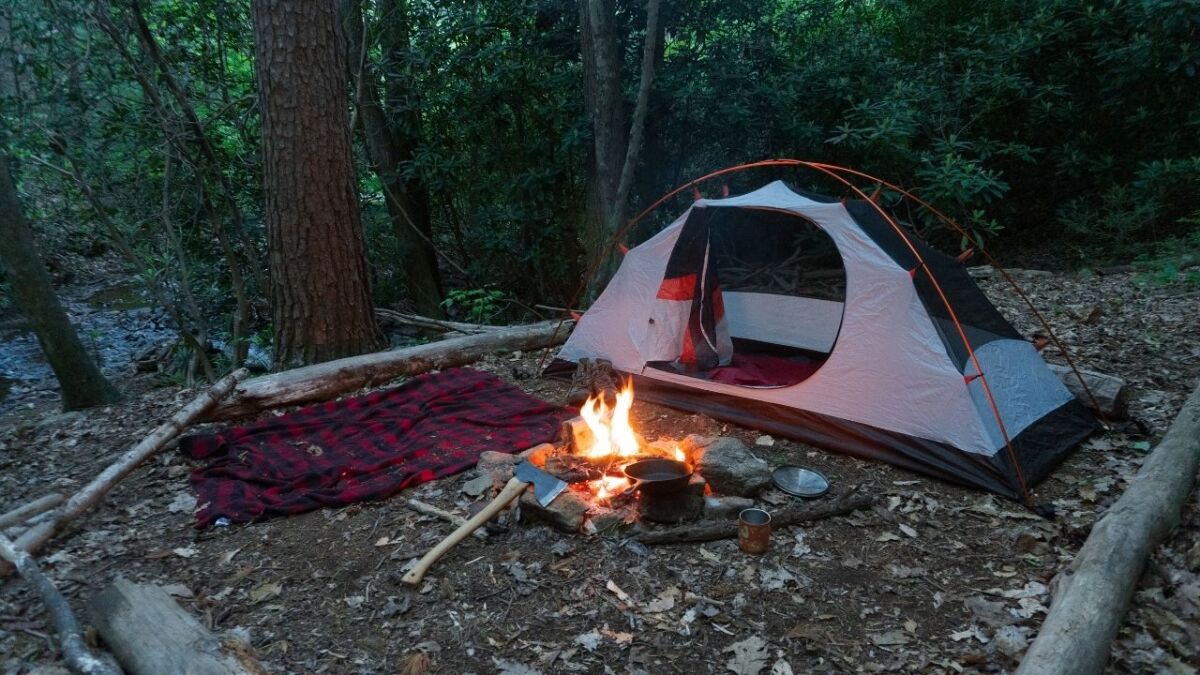
Trust in your equipment
Finally, the right equipment also plays an important role in getting a restful sleep in the forest.
Often, people feel much more protected with:
- a trustworthy tent
- a good hammock
- a sturdy shelter
- a bivouac sack
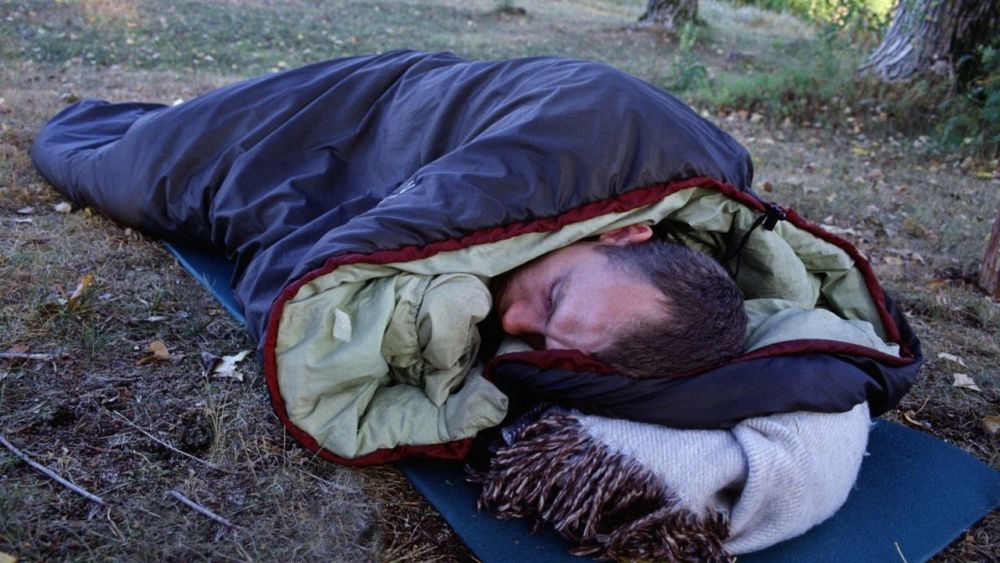
When choosing a sleeping spot, I make sure that my camp is relatively hidden and that I have a good view of the area. This way, I can keep an eye on my surroundings and don't have to constantly wonder what's lurking behind the next bush.
Ultimately, the more often you face the challenge, the faster you get used to the nocturnal soundscape in the forest.
Over time, you will become better at distinguishing whether there is cause for concern or not. Until then, distraction, a cozy sleeping place, and the certainty that your fears are completely normal will help.
Stay tuned and don't get discouraged - the forest and its fascinating sounds are already waiting for you!
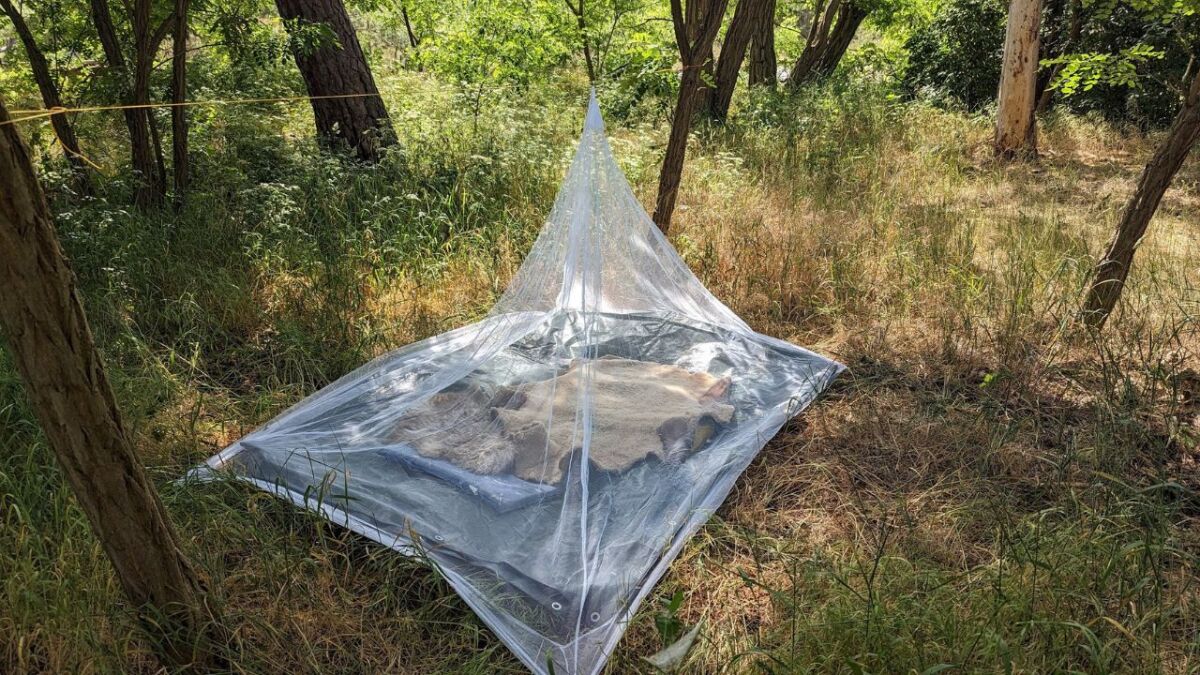
Fear of Darkness
Who doesn't know it? As soon as the sun sets and the shadows grow longer, a queasy feeling creeps in.
Suddenly, the forest seems threatening, and every bush appears to hide danger.
The fear of the dark is one of the most common concerns when staying in nature at night.
At first, I also felt anything but comfortable when I was sitting in the pitch-dark forest. Every shadow looked like a lurking animal, and I constantly wondered what might be behind the next row of trees.
But over time, I have learned to overcome my fears and enjoy the night in the forest. Today I can say: The darkness is your friend, not your enemy!
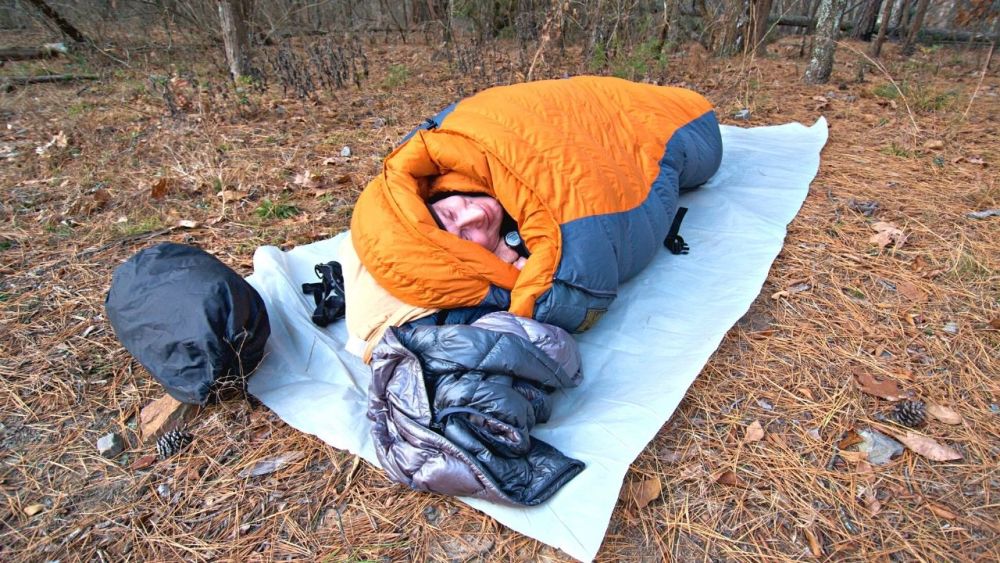
Let Mother Nature guide you
The moon and the stars are your natural allies at night. Use their light to orient yourself and enjoy the sight of the sparkling starry sky.
You will be surprised at how well you can manage without artificial light sources.
"Spend nights with a full moon and walk around without a flashlight. You will find that it is not much different from daylight." - a Reddit user
My tip: Start your first nocturnal explorations during a full moon. The gentle light of the moon is calming and helps you find your way in the dark. Over time, you will become more confident and can venture out even on moonless nights.
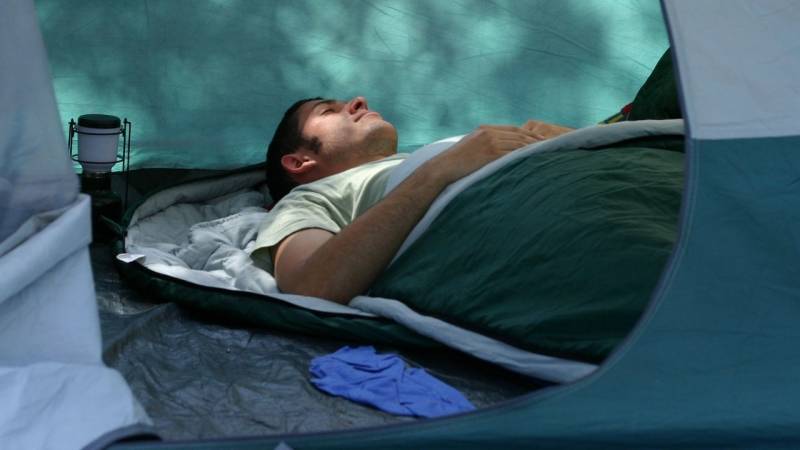
If you want to dive even deeper into the world of nature-based overnight stays, I recommend my article "The first night in the forest: how to sleep well in your camp". There, I go into detail about choosing the right spot, helpful equipment, and the right mindset.
The right equipment makes the difference
In addition to the natural lighting provided by the moon and stars, the right equipment is also crucial to ensure safety in the forest at night.
A reliable headlamp or flashlight is, for me, part of the basic equipment for any outdoor adventure. You can find out which other items are essential in my complete wilderness equipment list.
If you are nervous, there are many super easy fairy lights that you can attach to your tent for calming - the kids love them. - a Reddit user
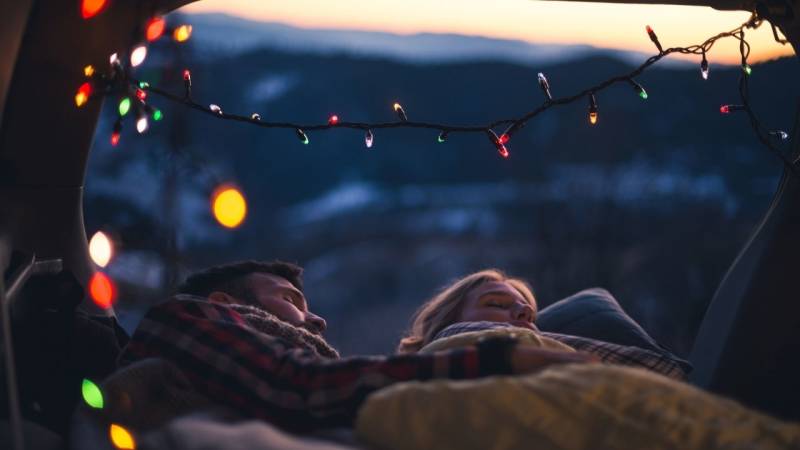
Choose a lamp with different brightness levels and a red light function, such as the Fenix HM61R v2.0. This way, you can adjust the lighting to your needs and avoid being blinded by bright light at night. Additionally, red light is less disturbing to nocturnal animals and does not attract annoying insects.
Trust is the key
Ultimately, it is a question of trust - in yourself and in nature. The more often you face the darkness, the faster you learn to appreciate it as part of the outdoor experience.
"There is nothing out there at night that isn't there during the day." - a Reddit user
Always remember: The night in the forest is just as safe as the day. Most animals avoid contact with humans, and other dangers do not lurk in the dark either.
Use the tranquility of the night to listen to yourself and sharpen your senses. Listen to the sounds of the forest and breathe in the fresh night air. You will notice how you become more and more relaxed and the fear of the dark falls away from you.
Soon you will long for the nights in the forest and wonder what you were actually afraid of. So be brave and let the darkness become your ally - it's worth it!
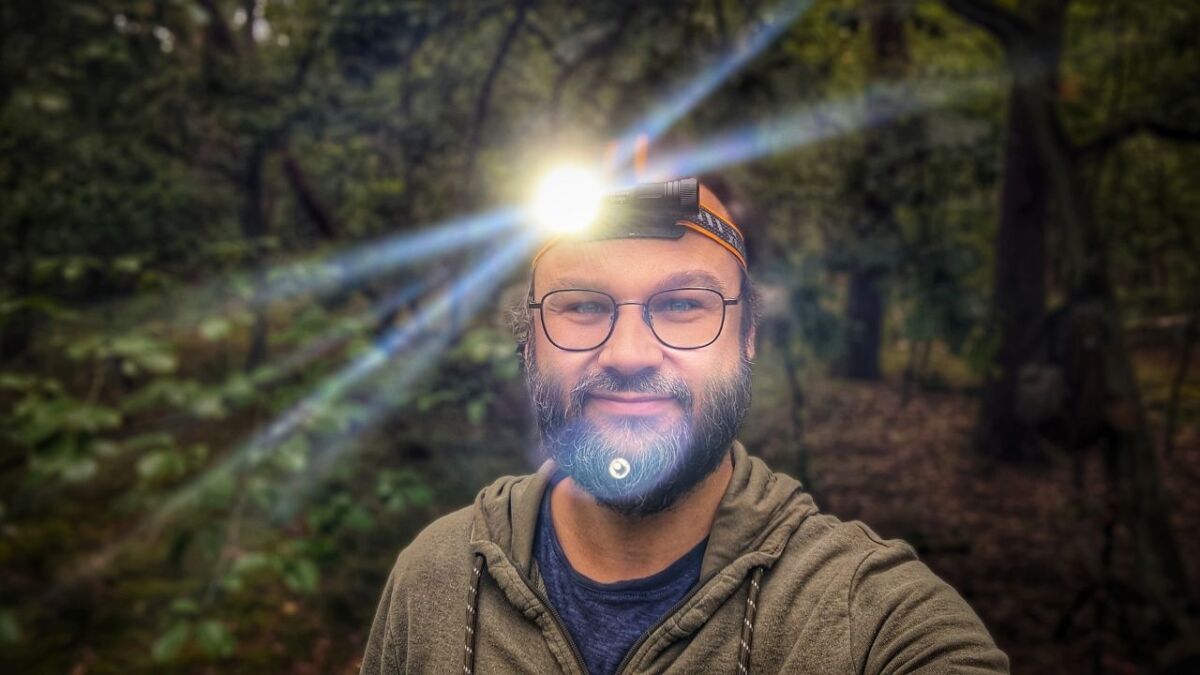
Fear of Wild Animals
Hand on heart: Have you ever mistaken every rustle in the forest for an approaching bear? Don't worry, you're not alone.
The fear of wild animals is one of the most common concerns when spending the night in nature.
I still vividly remember my first encounter with a wild boar. It was in the middle of the night, and I suddenly heard a loud snorting and rustling in the underbrush.

My heart was racing, and I was sure that a hungry bear would soon be standing in front of my hammock. I had made the mistake of eating a nice meal beforehand. The result: I couldn't take it - that night I gave up and drove home.
In fact, the vast majority of wild animals are shy and avoid proximity to humans.
They are just as afraid of you as you are of them! Even bears and wolves usually do not actively seek a confrontation.
"The by far most dangerous predator for humans are other humans." - a Reddit user
Of course, there are a few things to keep in mind to avoid unwanted encounters. Above all, food and garbage should be securely stored to avoid attracting animals.
What dangers lurk in the forest and how to behave best, you can find out in my guide "Dangers in the Forest - Pay Attention to These 15 Things".
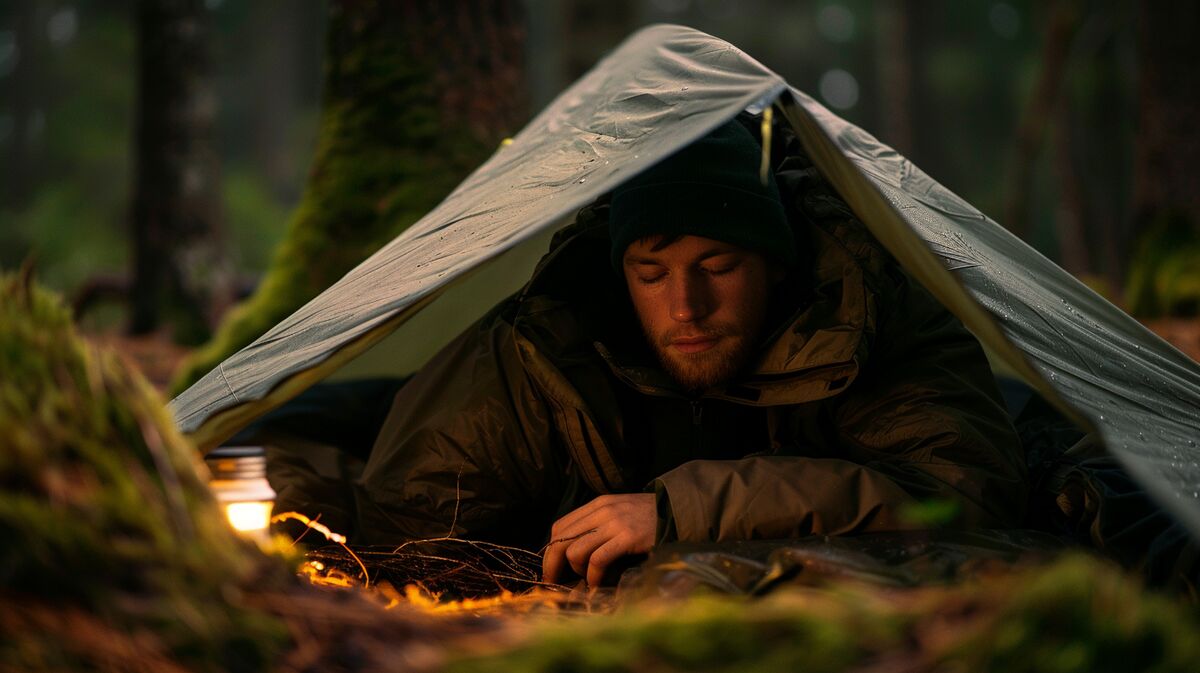
Knowledge is Power
Good preparation is the key to a relaxed stay in the wilderness. Inform yourself in advance about the animal species in your destination area and their behavior. This way, you know what to do in case of an emergency and can remain calmer.
In most cases, simple measures like making noise or slowly retreating are enough to keep animals at a distance. For additional safety, bear spray and a sturdy shelter provide extra security.
Furthermore, I have made it a habit to look for animal tracks. If I set up my camp directly on an animal trail, that wouldn't be very clever. For many animal tracks, take a look at my guide "Learning to Track for Beginners (with many picture examples)".
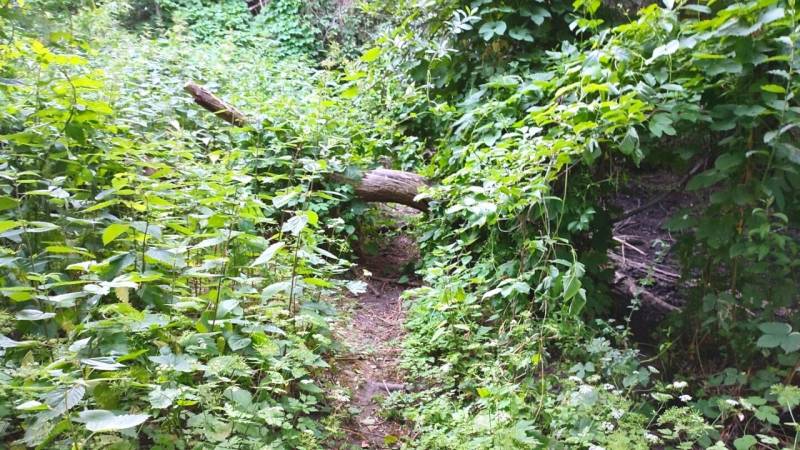
Training your perception
Over time, you will develop a sense for which sounds and signs actually indicate the presence of a wild animal. Often, the supposed bear turns out to be a harmless raccoon or bird.
"The worst are animals like armadillos and raccoons, which make noise like three bears when sleeping - although I have also been woken up by a few very rude turkeys." - a Reddit user
Use every stay in the forest to sharpen your senses and get to know nature better.
- Watch for tracks
- Listen to the sounds
- Observe the behavior of the animals from a safe distance
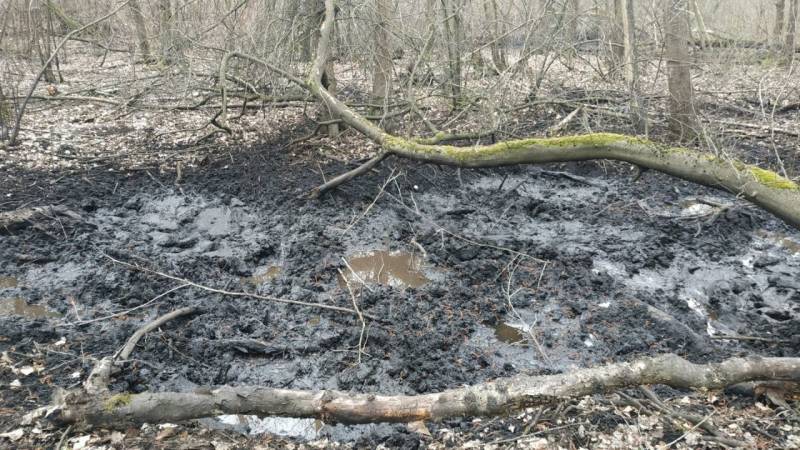
The more practical experience you gain, the easier it becomes for you to assess dangers correctly.
Always remember: Most animals are just as uninterested in encountering you as you are. With the right preparation and a bit of mindfulness, nothing stands in the way of a peaceful coexistence in the forest.
So take a deep breath, enjoy the beauty of nature, and leave the fear of wildlife behind. Bet that a curious deer will soon be standing in front of your tent?
Read also
Recognize and interpret animal tracks in the snow: deciphering prints, tracks, and trails (with pictures) – Discover the art of tracking and learn to recognize and interpret animal tracks in the snow, from deer, hare, wild boar to fox and squirrel.
Fear of people
Imagine you're lying alone under your tarp in the middle of the forest at night. Suddenly, you hear footsteps approaching. Your heart races, your thoughts are in turmoil.
Who's there?
What does this person want from me?
The fear of human dangers is probably the greatest concern that many have when camping alone. I know this all too well.
During my first solo overnight stays in the wilderness, I constantly felt like I was being watched. Every distant light, every crack in the underbrush made me flinch.
"You always think that the axe murderer is roaming through the forest at night looking for a victim!"
But over time, I have learned to question my fears and assess them realistically.
Today I know: The chance of encountering "bad people" in the forest is vanishing small.
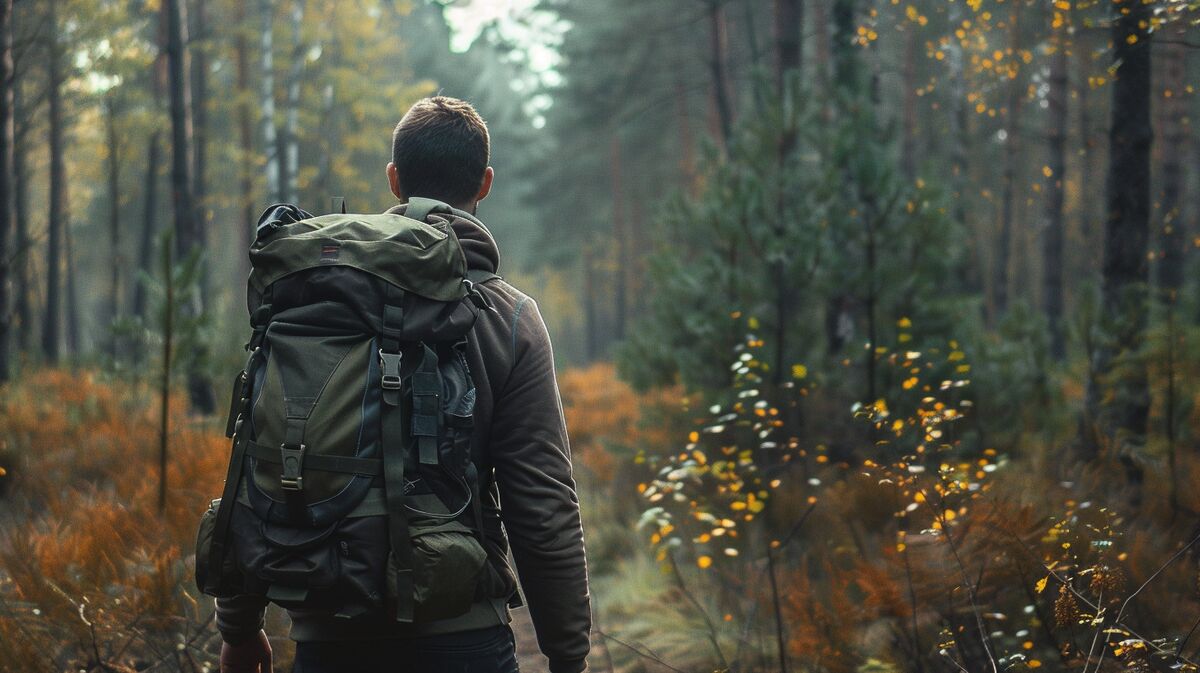
The statistics speak for themselves
In fact, the likelihood of encountering a dangerous situation in the city or on the way home is many times higher than in nature.
On the way home from the pub, you're definitely more likely to encounter shady characters than on a solitary camping trip - unless you've accidentally boarded an alien spaceship.
The chance of encountering a dangerous person in the city is 10,000 times higher.
The vast majority of people who venture into the forest at night are peaceful hikers or outdoor enthusiasts like you and me.
"I am much more afraid of crazy people than of grizzly bears. With a bear, you can take certain precautions to protect yourself from a bear. However, you cannot plan how to deal with crazy people." - a Reddit user
Of course, there is no such thing as one hundred percent security, but with a few simple precautions, you can minimize the risk even further.
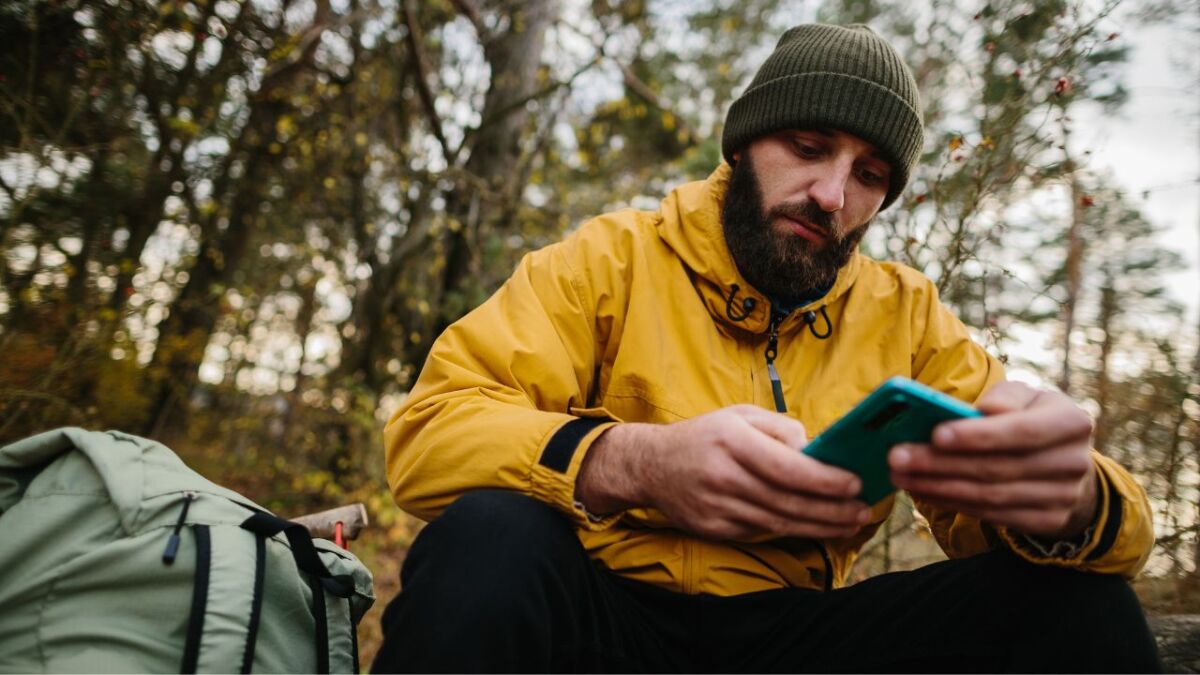
The right place at the right time
When choosing your sleeping spot, make sure to stay away from main paths and well-trodden trails.
The further you move away from heavily frequented areas, the less likely an unpleasant nighttime encounter becomes.
"I find it immensely helpful to remember that, with very few exceptions, I am by far the most dangerous thing in the forest."
Trust your gut feeling. If a place seems strange to you or you have a bad feeling, it's better to find another place for the night.
Typically, we can intuitively assess very well whether a situation is safe or not.
Safety through Visibility
Paradoxically, it can sometimes be safer to not camp too hidden. Those with bad intentions are more likely to look for an easy victim.
An openly visible tent or a small campfire signal that you are alert and prepared.
In very remote areas, sending a message to the ranger or family can provide additional safety. This way, someone knows where you are in case of an emergency and can send help.
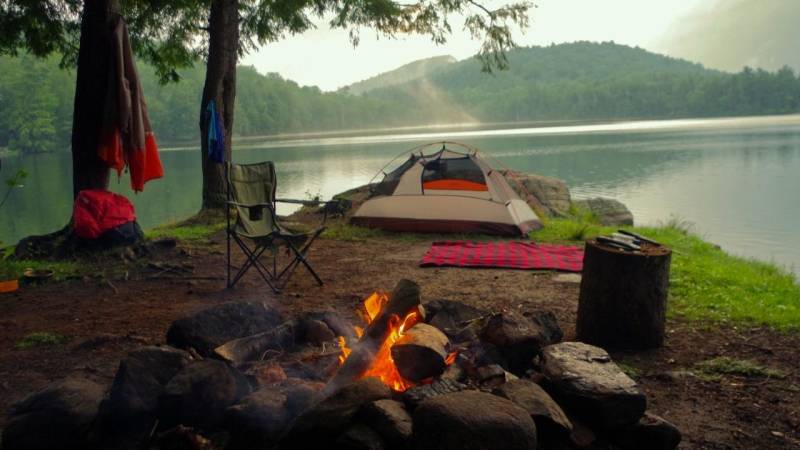
The Power of Serenity
Ultimately, the fear of human dangers is often more irrational than that of wild animals or creepy noises. Predominantly, it stems from a diffuse feeling of helplessness, coupled with too many horror movies.
“I remember talking to a girl at work about camping and she asked: Aren't you afraid that a crazy person with an axe or something will storm into your tent?” - a Reddit user
Try to question your fears rationally and not drive yourself crazy. The more relaxed and confident you appear, the less likely you are to get into a tricky situation in the first place.
Mental emergency plans can also help to stay calm. Think in advance about what you would do in an emergency and visualize a positive outcome. Over time and with enough positive experiences, the fear of human dangers will become smaller and smaller.
And believe me: One day you will understand that the forest is one of the most peaceful places there is.
So enjoy the solitude, take a deep breath, and let yourself go. Nature is your friend - and most of the people you meet are too!
Fear of Cold
Shiver, shiver - do you know that feeling too? You're lying in your sleeping bag at night and just can't stop trembling.
The cold slowly but surely creeps into every fiber of your body, and sleep is out of the question. By now, you're probably wondering why you voluntarily subjected yourself to this torture.
Don't worry, I too have had my experiences with frosty nights in the wilderness.
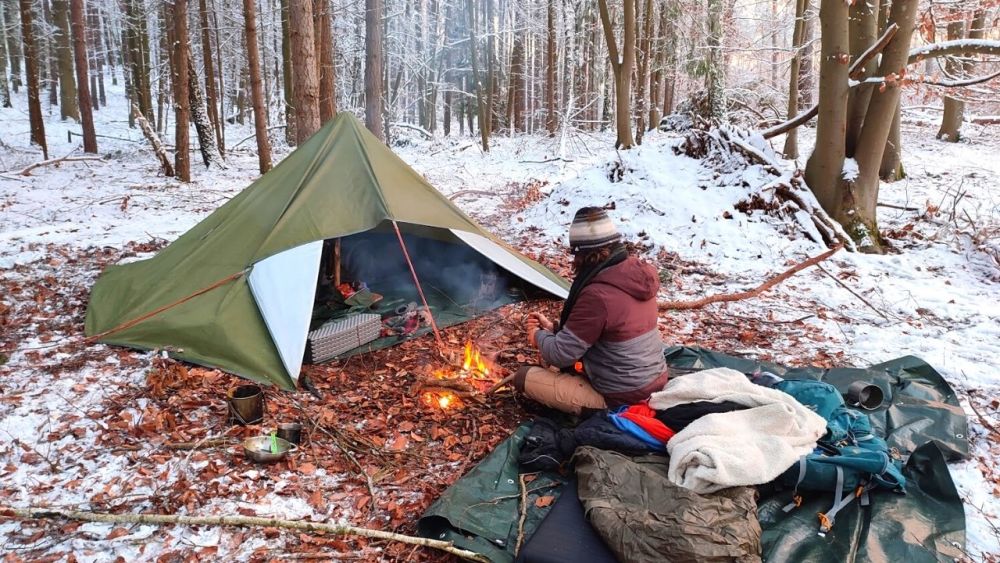
Once I was so cold that I seriously considered taking down my tent and going home.
But then I would have missed the breathtaking sunrise the next morning!
Here is the picture, I can still remember well, because it was in winter. 👇
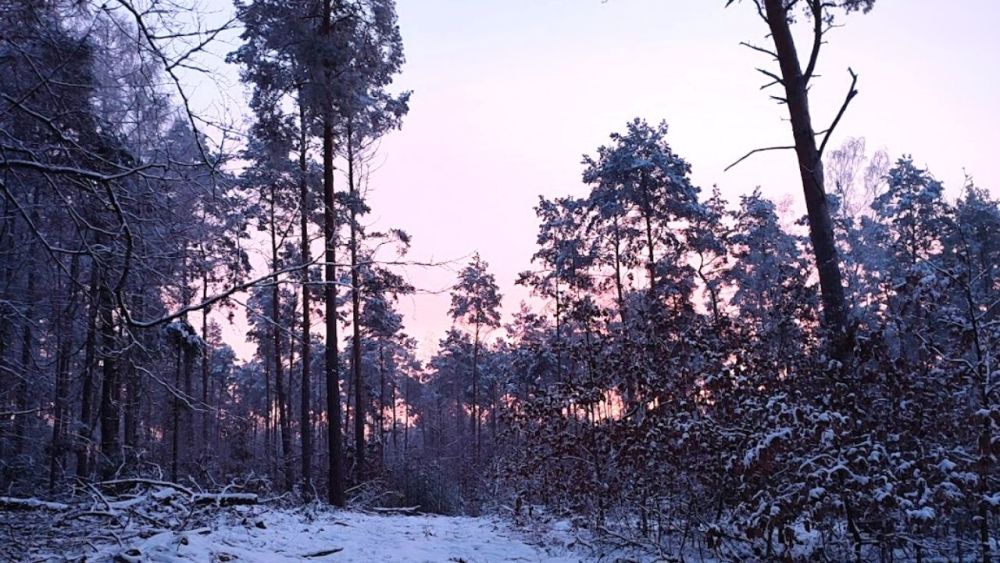
If you are not a fan of the cold either, I have a few tips for you on how to stay cozy and warm through the night.
The right equipment is essential
In icy temperatures, your sleep system is your best friend. Invest in a high-quality sleeping bag (here is my best list) with an appropriate temperature range and make sure it is breathable and moisture-regulating.
"A high-quality Underquilt and a good sleeping bag ensure that you stay comfortably warm in your hammock well below freezing." - a Reddit user
Equally important is an insulating pad. Whether it's a foam mat or an air mattress (does that really work?) - it should be thick enough to effectively shield you from the cold ground. For additional warmth, a fleece liner (like the Mil-Tec fleece sleeping bag) or a bivy sack can help.
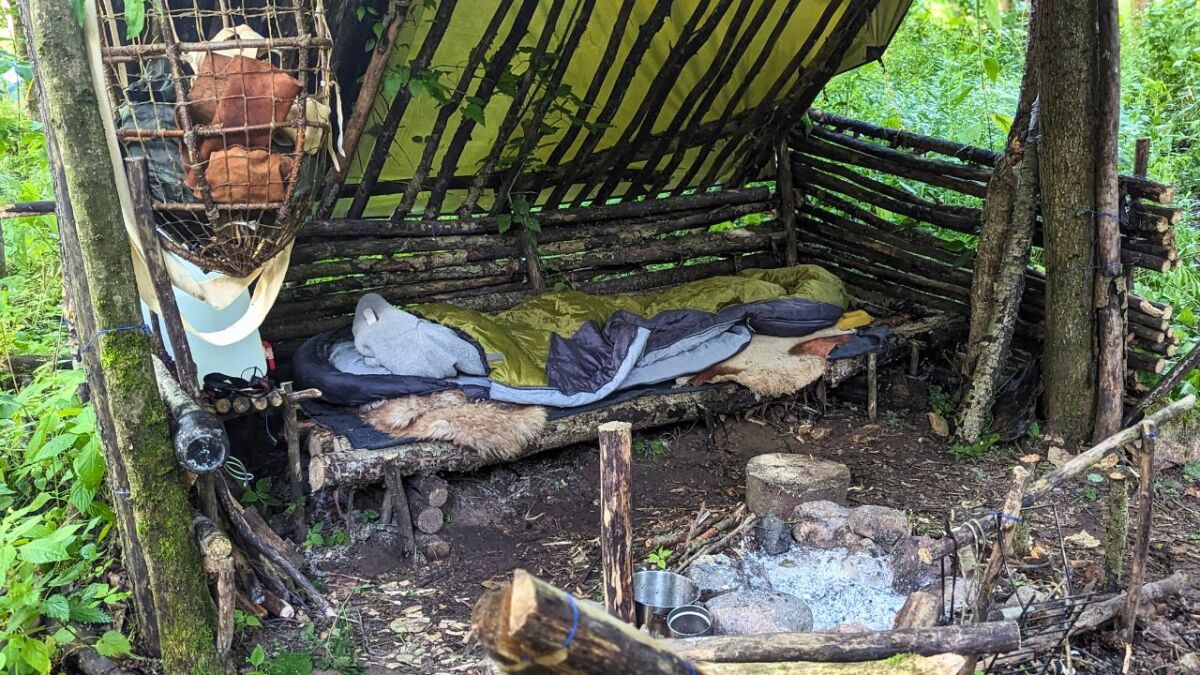
Clothing is Key
You can also outsmart the cold with the right clothing. Wear breathable and quick-drying functional clothing directly on your skin and use the layering principle. Several thin layers are better than one thick piece.
"Layers are your friend. Cotton is usually bad and can be very uncomfortable." - a Reddit user
Don't forget to keep your head and feet warm as well. A thick wool sweater, socks, and a hat can work wonders when it comes to regulating your body temperature.
Read also
Survival in winter – these tips are important in cold weather – Winter weather and cold pose great challenges in survival. To avoid unnecessary risks, you must plan carefully in advance.
Warmth from inside and outside
In addition to the right equipment, you can also warm your body from the inside. A cup of hot tea (like a pine tree tea) or soup before going to bed works wonders.
"I drink melatonin tea and put in earplugs. If I die, I die peacefully and I will rest in peace." - a Reddit user
Even a little exercise can help stimulate circulation and ward off the cold.
Do some light gymnastic exercises, maybe a forest workout the afternoon before, or treat yourself to a short walk under the starry sky. But don't overdo it; otherwise you'll sweat and cool down even more later.
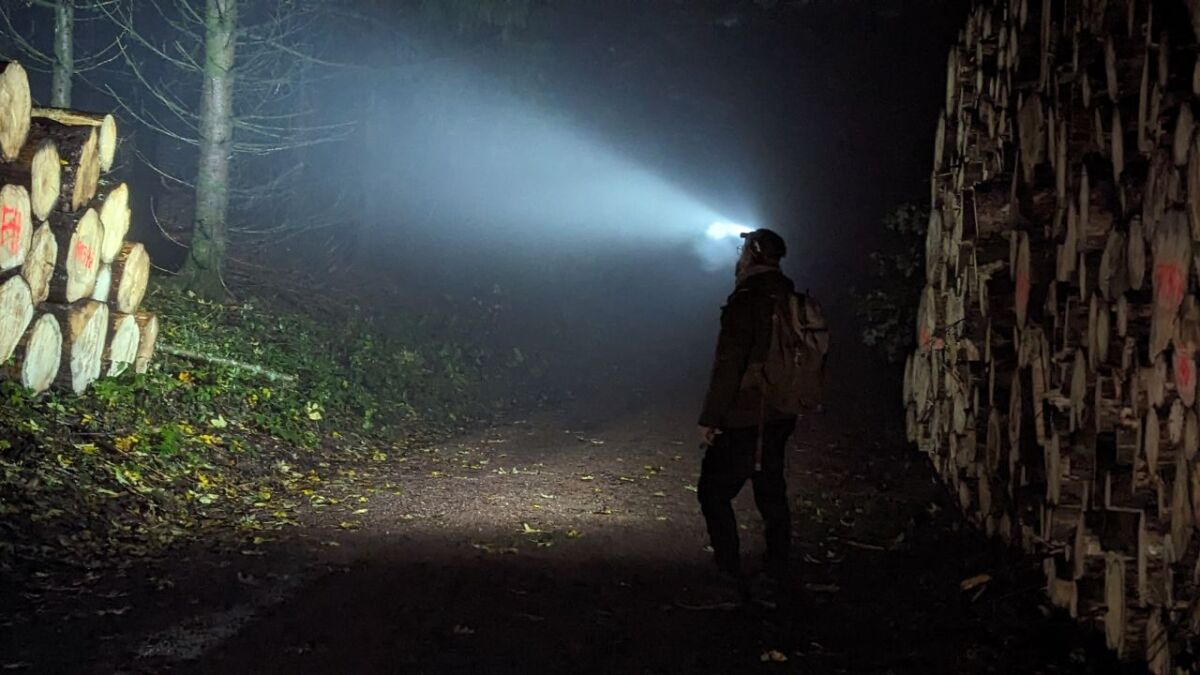
The Power of Positive Thinking
Finally, your inner attitude also plays an important role. Accept that it is naturally colder at night in the outdoors than in your cozy bed at home.
Try to see the cold as part of the adventure and not as the enemy.
"Just embrace your nervousness - that's part of the charm of camping. If it bothers you a lot, I recommend talking to yourself a bit." - a Reddit user
With time and enough positive experiences, you will notice that the cold bothers you less and less. You will develop a sense of how many clothes you really need and get used to the cool environment.
And believe me: There is hardly anything more beautiful than starting a crystal-clear morning after a frosty night in a sleeping bag. So wrap up warm, make yourself a hot cocoa, and enjoy the icy cold beauty of nature!

Fear of Discomfort
Ouch, my back! If you've ever said this sentence after a night in the wilderness, you're not alone. The fear of discomfort is also one of the concerns that troubles outdoor novices.
Believe me, I have slept on many a rock and branch and felt like I had been run over the next morning. Once, my sleeping mat slowly lost air overnight and I woke up on the hard ground - ouch!
"I usually sleep without a mattress, always have a very restful night, but that doesn't get better with age either." - a Facebook user
But over time, I have learned that a comfortable sleep in nature is not an impossibility.
With the right equipment (here is my complete equipment list) and a few tricks, you will sleep like on clouds even in a tent or under the open sky.
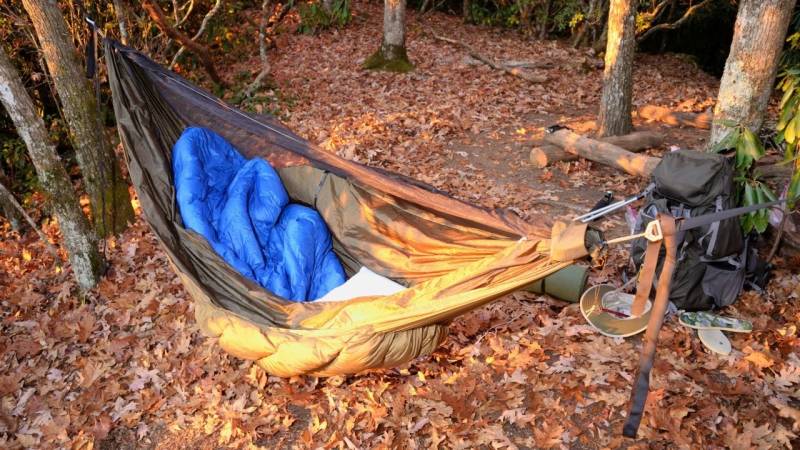
The underground makes the difference
Choosing the right sleeping spot is crucial for a restful night outdoors. Avoid stones, roots, and branches, and instead look for a flat, soft surface.
"Hammock? You'll get a rounded back from that. Better on a flat, soft natural surface." - a Facebook user
Leaves, moss, or sand are excellent as a natural mattress. If necessary, dig a small hollow for your hip to keep your spine straight.
And if you are more of a hammock sleeper.
Then find yourself a windless spot and make sure you are protected from the cold from below.
Are you dissatisfied with the hammock because you lie in it like a crooked cucumber? Then read here how to sleep correctly in a hammock 👉 Sleeping in the hammock: important basics for beginners and required equipment.
Or, if all this does not work out (like with me), then definitely check out the "Haven Tent". The first time I slept in it, I slept through the night! And the next morning no back pain. And I can even sleep on my side in the hanging tent.
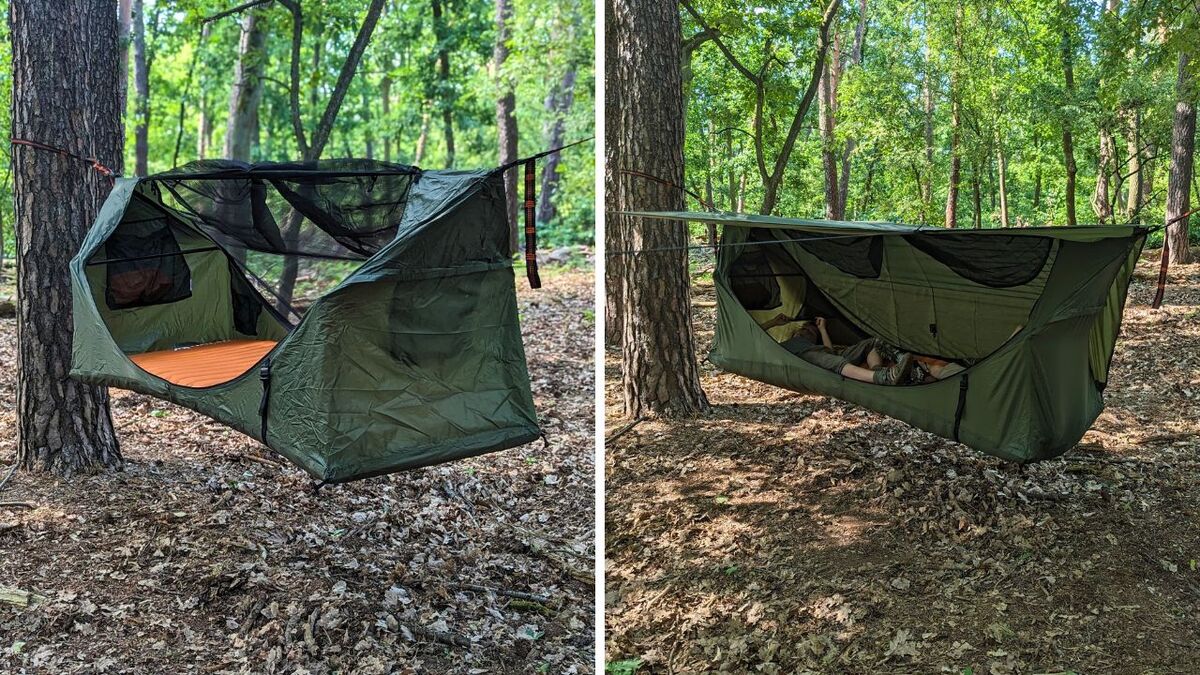
If you find the "Haven Tent" exciting, then be sure to read my review about it. There I explain in detail why you lie straight in this type of hammock.
Here you can find the review: The Haven Tent: My game-changer for heavenly sleep in the wilderness.
Comfort through the right equipment
You can also prevent discomfort with the right sleeping gear.
Invest in a high-quality sleeping pad or air mattress that suits your needs.
"Get yourself a well-insulating sleeping pad, either an inflatable one like a Therm-A-Rest NeoAir XLite or a foam sleeping pad like a Nemo Switchback or Therm-A-Rest Z Lite Sol." - a Reddit user
Make sure to have sufficient thickness and insulation so that you are not lying on the cold ground. A pillow can also work wonders when it comes to relieving your neck.
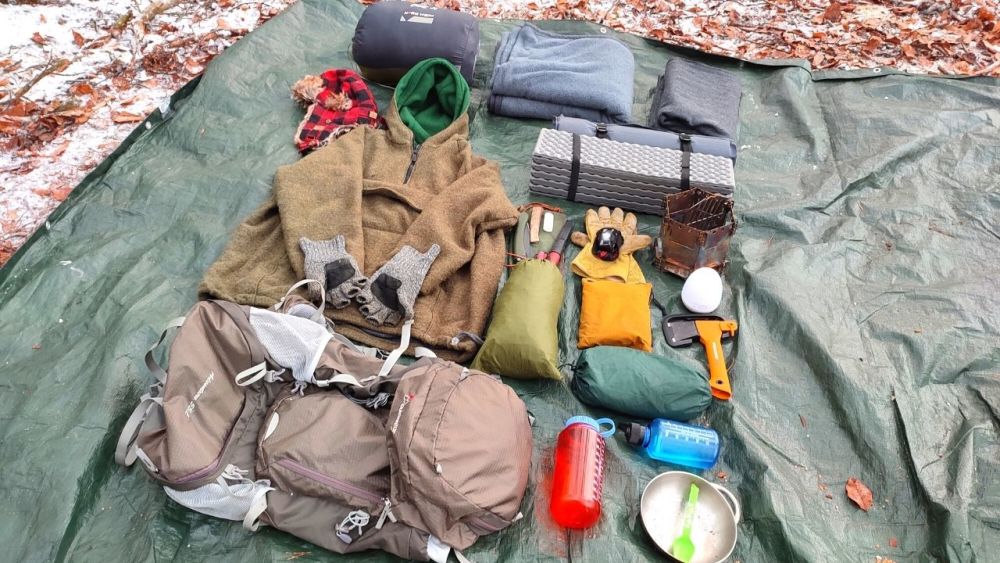
The right sleeping bag technique
Not only the equipment, but also the right sleeping technique can be crucial for a restful sleep.
For example, I find it difficult to sleep on my back, so a hammock is not for me either.
Experiment with different lying positions and find out which one is most comfortable for you.
"If I have a sleeping mat and a sleeping bag with me and roll up sideways on it so that my legs are almost bent, then I sleep like a rock and wake up with no discomfort." - a Facebook user
Avoid sleeping on your stomach as it bends your spine unnaturally. Instead, place a pillow or a rolled-up jacket under your knees to reduce pressure on your lower back.
Read also
Hammock or Ground Sleeping? – a comparison with pros and cons – Hammock or ground sleeping in comparison? I want to compare the two sleeping methods based on their facts. Opinions are divided on the subject.
Acceptance is the key
Ultimately, it's also about adjusting your expectations for sleep comfort in nature. You will probably never be as comfortable as in your bed at home - and that's okay.
"Just accept that the ground is hard. The body gets used to it over time - just like people used to sleep on the ground without any problems." - a Facebook user
Try to see the small inconveniences as part of the adventure and instead enjoy the fresh air, the sounds of nature, and the feeling of freedom.
Over time and with enough practice, you will learn to sleep restfully even on uneven ground.
And believe me: There is hardly anything more beautiful than starting a new day in the wilderness, rested and full of energy. So accept the challenges, find your very own sleeping comfort, and enjoy the adventure.
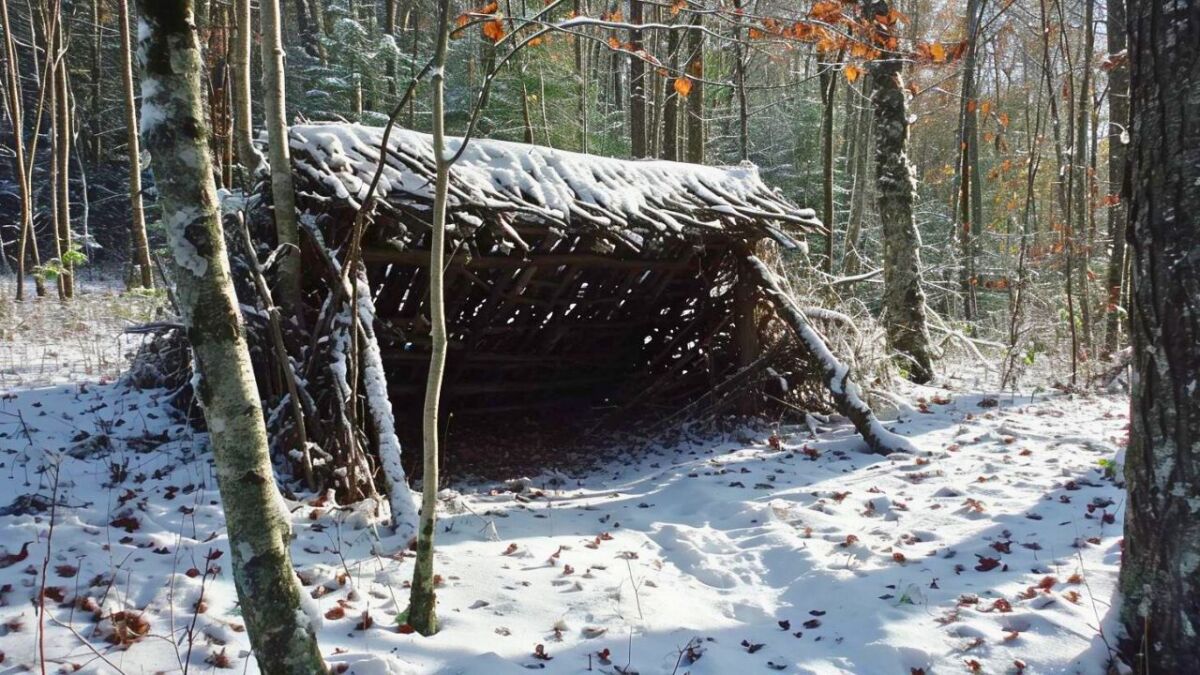
Fear of Loneliness
Alone in the wilderness - for some a dream, for others a nightmare.
If you are one of those who fear loneliness in nature, I can reassure you: You are not alone with this feeling!
I still vividly remember one of my first solo overnight stays in the forest. As the sun set and the sounds of the night grew louder, I suddenly felt terribly lonely and lost. At that moment, I would have given anything for a familiar voice or a hug.
But over time, I have learned to appreciate and even enjoy the solitude in nature.
Today, I sometimes long for a lonely night under the starry sky. I'll tell you now how you can get there too.
"Having a brother or sister around works wonders!" - a Reddit user
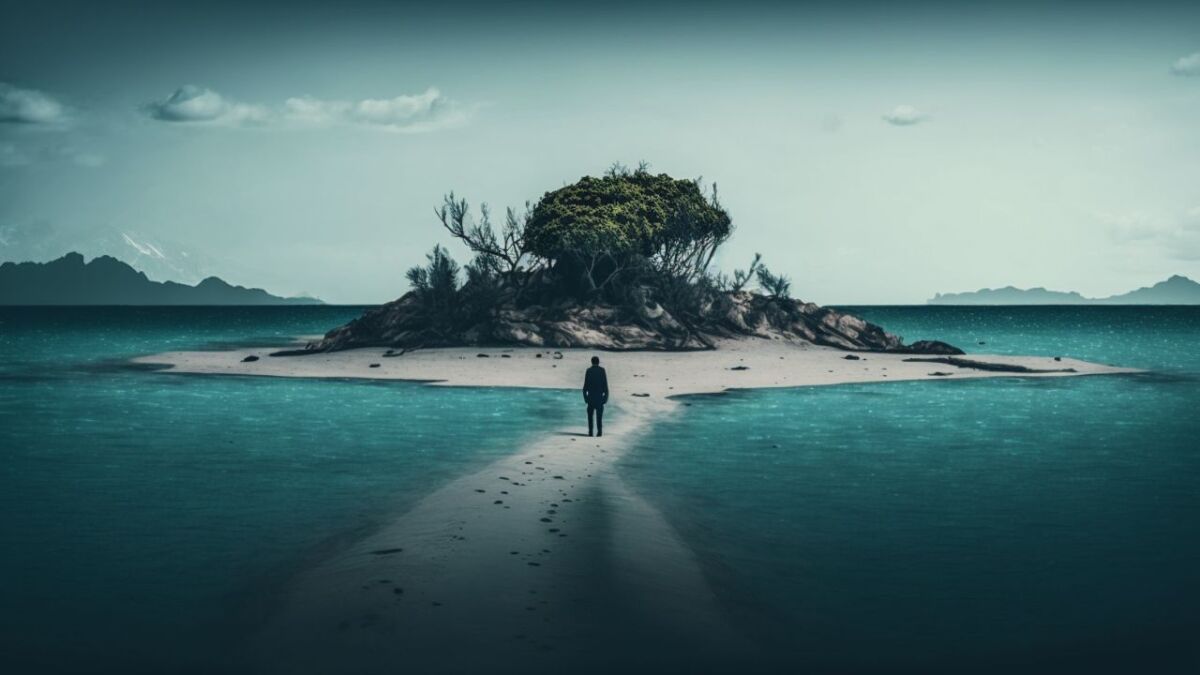
Step by Step into the Solo Adventure
If you have only ever camped outdoors in company, the thought of a solo tour can be intimidating.
My tip: Approach it slowly and gradually increase.
"The way to overcome the fear of anything is to do more of it, and one day you will realize that the fears were completely irrational." - a Reddit user
Start by spending some time alone in nature during the day.
Take a long walk or find a quiet place to relax (maybe make a sitting spot). This way, you get used to the feeling of being on your own.
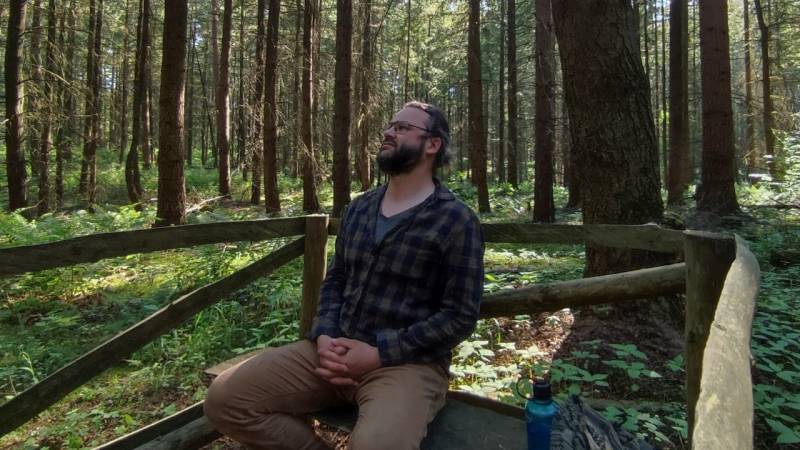
Proper preparation is everything
To avoid being overwhelmed by loneliness and fears at night, good preparation is essential.
Plan your tour carefully, pack all necessary equipment, and inform someone about your route and your planned return time.
"Just expose yourself to it more and more. You will make it!"
The knowledge that someone at home is thinking of you and knows in case of an emergency can be very reassuring.
Even a means of communication like a satellite phone or an emergency transmitter/PLB (Personal Locator Beacon) can make loneliness more bearable.
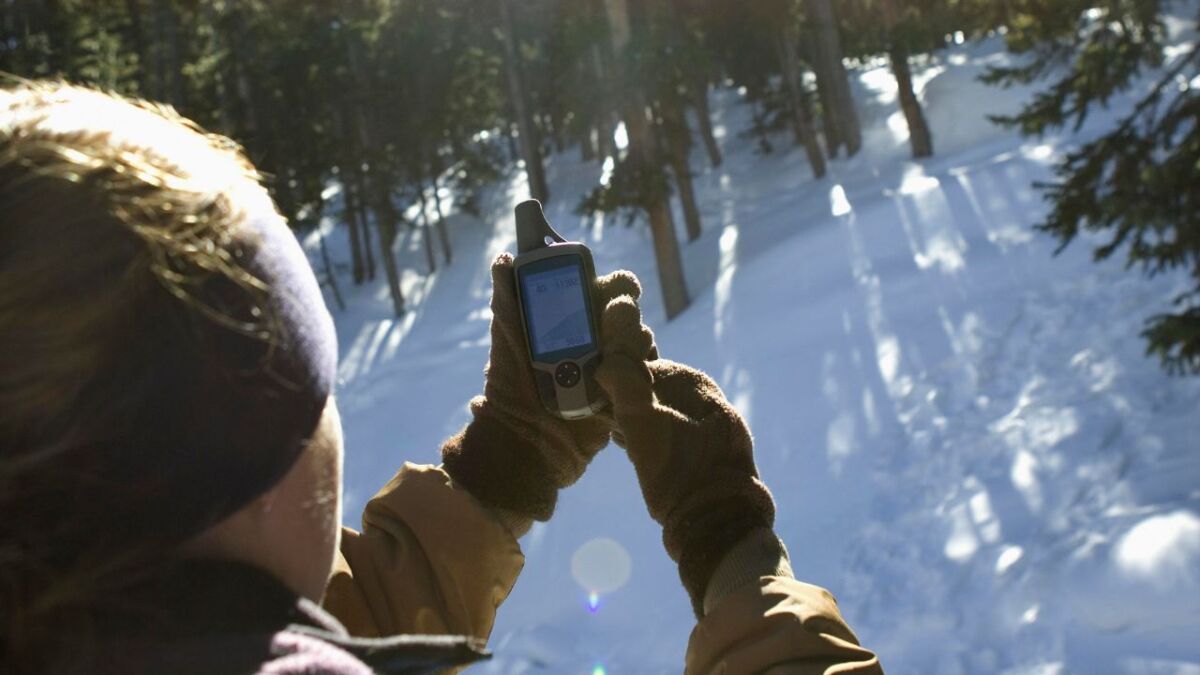
Engage your mind
One of the best methods to avoid falling into brooding and fears at night is distraction. Take an exciting book, a puzzle, or another hobby that mentally challenges and occupies you.
"Download your favorite recording and some good podcasts! This helps you ignore any rustling you might hear in the bushes!" - a Reddit user
A diary or a travel journal can also help you organize your thoughts and focus on the positive. Write down what you have experienced, what moves you, and what you are looking forward to.
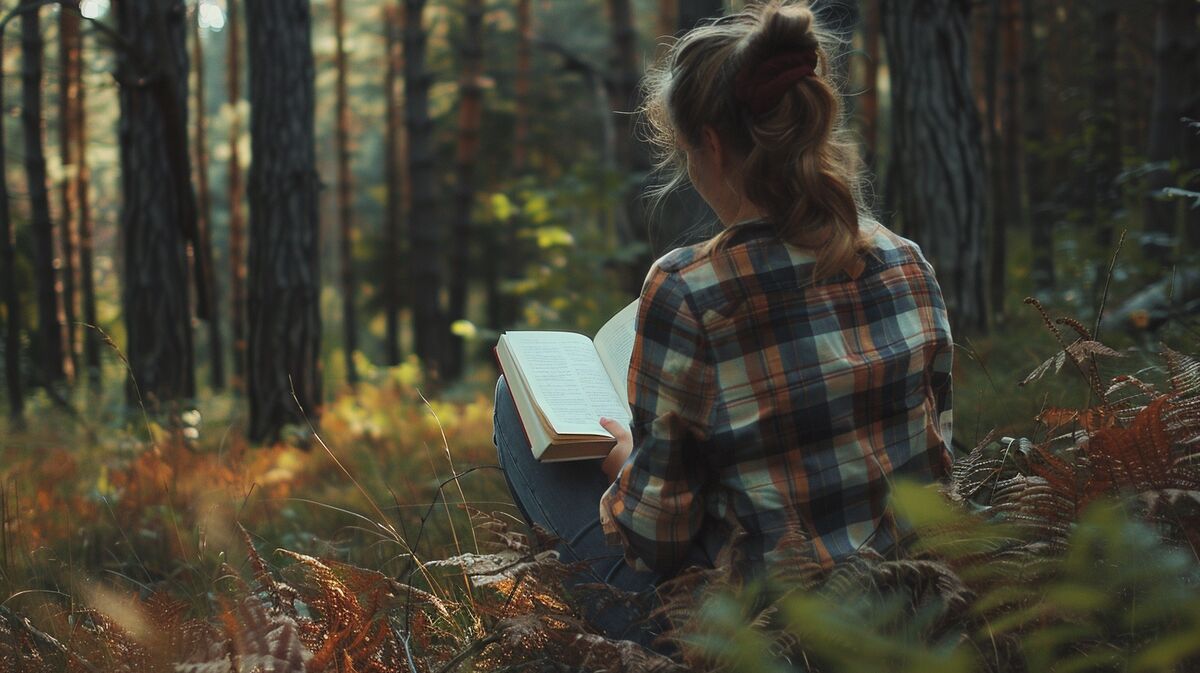
Enjoy the freedom and tranquility
Yes, solitude in nature is a double-edged sword. On one hand, it can be frightening and overwhelming, but on the other hand, it also holds incredible potential for inner growth and self-discovery.
"Being alone or with just one other person doesn't make me feel safe because I think, 'Oh God, I'm about to be the start of a Law-and-Order episode.' But when you have a larger group, like 4 or 6 people, it's much more helpful." - a Reddit user
Try to see the silence and seclusion as a gift. Use the time to listen to yourself, find peace, and gather new strength.
Often, it is precisely the moments of solitude in which we are closest to ourselves.
Over time and with enough positive experiences, you will notice that the fear of loneliness gradually fades away. You develop a new trust in yourself and nature and learn to enjoy the beauty of solitude.
So take a deep breath, enjoy the freedom, and let yourself fall. Solitude in the wilderness can be your greatest teacher - if you only allow it!
Pssst: Something to relax. In my little video series, you can see how I set up a camp, make a fire, and even sleep there (in part 3). I can say: the bed was hard due to its construction, but it was a beautiful night.
👉 Part 1: Building a Shelter, Part 1 – Location, Interior Construction, Fireplace, Food – Bushcraft, Survival & Outdoor
👉 You can find part 2 here (fire drill, campfire, food, try stick)
👉 Find part 3 here (Overnight stay with bed, cooking, fire drill, basket weaving)
Conclusion: Perseverance Pays Off with Anxiety!
Phew, that was quite a lot of input regarding fears and worries about sleeping in the forest, wasn't it?
But don't panic - I promise you, it's not as bad as it seems!
Let's take a moment to breathe and recap what we have learned so far.
You are not alone
First things first: All the fears and uncertainties you feel at the thought of a night in the wilderness are completely normal and human.
Anyone who has ever spent a night alone in the forest knows these feelings.
"Ok, so you went home instead of sleeping in the forest. You recognized your limits, decided not to exceed them. That's good! Do you know how many people panic, get injured, and need to be rescued because they don't recognize their limits?" - a Reddit user
So don't be too hard on yourself and accept that fears are simply part of it. With the right preparation and mindset, you will learn to overcome them.
Every beginning is difficult
Remember your first driving lesson or your first day at a new job.
Were you nervous and uncertain? Were you afraid of making mistakes or failing?
It's the same with sleeping in the forest - at first, everything is new and unfamiliar.
"Sleeping in the forest and overcoming fears takes time or discipline. Sporadically both. It's like many other things in life."
But with every night you spend outside, you will become more confident and relaxed.
You get to know your equipment better, learn to interpret the sounds of nature, and develop confidence in your abilities.
Let this sentence sink in:
Humans have been living and sleeping outdoors for hundreds of thousands of years.
This thought helps me a lot to put this fear into perspective. How many people have managed to sleep outside and nothing happened? It has been millions.
Preparation is half the success
A large part of your fears can be alleviated in advance through good planning and the right equipment. Thoroughly research your destination, pack weatherproof and comfortable gear, and choose a sleeping spot where you feel safe.
"You just need more time in the forest. Familiarity creates comfort, also camp with friends who have experience." - a Reddit user
The better prepared you are, the more you can relax at night and enjoy nature. And over time, packing and planning will become routine - promised!
It's worth facing your fears!
I know, the first night alone in the forest can be a real challenge. Maybe you lie awake for hours, get startled at every noise, and wonder why you're even doing this to yourself.
But believe me: It's worth sticking it out! Because once you've experienced how magical a starry night far from civilization can be and how refreshed you feel the next morning, you'll be addicted to more.
So stay tuned, be patient with yourself and trust that it will get easier each time. The wonderful experiences and memories you gather in nature are worth all the initial efforts.
Be aware that everything else in the forest is afraid of you and will run away at first sight (unless it's bear territory). In nature, you are safer than driving to work…
So, let's awaken the spirit of adventure together and enjoy the beauty of nature.
I encourage you to share your experiences, tips, and tricks in the comments. This way, we can support each other and learn from one another. But if you do, please be kind. For many people, it is difficult to admit and stand by their fears.
So, pack your sleeping bag and venture out – nature is waiting for you!
Are you hooked now and want to expand your wilderness skills?
Then my beginner's guide "Bushcraft: how to start?" is just right for you. Learn step by step how to survive in the wilderness and master your next outdoor adventure.
Chin up, chest out, and into the adventure! You can do it!


Author of the guide
Martin Gebhardt
Hey, I'm Martin. On my blog, you will learn the basics and numerous details about living in the wild. I think survival, bushcraft and the good life in nature are the keys to happiness. Find me here on Instagram or on YouTube. You can find more about my mission on the About Me page.
Was this guide helpful?
26 people found this guide helpful.
5.00 out of 5 points (26 Ratings)
Comments (0)
This post may contain affiliate links. So if you click on the links and make a purchase, I will receive a small commission at no additional cost to you. Click here, to learn more about it.


